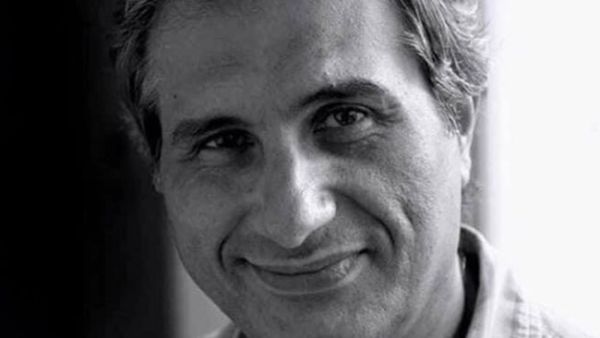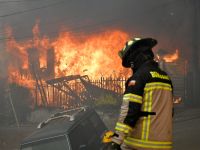“The sky itself darkens in sorrow when an artist leaves this world behind. The winds howl through the vacancy he has left in this edifice we artists have built, and are always building together, brick by brick, wherever we might find ourselves.”
Masrah al-Madina founder Nidal Ashkar has composed a tribute to Bassam Saba. An eloquent advocate of Arabic music, the Lebanese performer and educator had cultivated a successful career in the US before taking the helm of Lebanon’s National Higher Conservatory of Music. He passed away two months ago, Dec. 4, at the age of 62, a victim of COVID-19.
“I remember when you came to us at Masrah al-Madina in 1996,” Ashkar writes, “that space we had just built and just opened up, a space we imagined could finally be a home for us all: actors, directors, musicians, poets, playwrights, writers. It was a space that received you with pride over many long years ... you and Michel Merhej, and Simon Shaheen, and so many other conductors and composers and musicians and singers besides.”
Saba was born in Tripoli on Oct. 26, 1958. He learned to play the nay at home, having grown up in a household of amateur musicians, and continued his studies in nay, oud, and violin at the Lebanese conservatoire.
In 1976 he left Lebanon to pursue his music education, receiving a BA in Western Classical Music and Flute Performance at Paris’ Conservatoire Municipal des Gobelins. Later Saba took a Master’s degree in Western Flute Performance and Music Education from Moscow’s Gnessin Musical Pedagogical Institute.
“I can never forget the melody of your nay, which kept time with one’s heart, or the sighing of your violin, that matched the resonance of one’s soul,” Ashkar recalls. “I remember your extraordinary presence. I remember your erudition, your culture, your overspilling love. You were the ideal, Bassam, a shining example to us all: in your artistry and in your humanity ...
“I bow my head to your memory my dear friend Bassam.
“I bow my head in deference to your singular spirit, and I bow my head in apology. I apologize on behalf of our wretched government, for they will never have the conscience to apologize themselves for what they did to you. For how they made you suffer till the end with their disrespect and negligence, with their inability to see how precious you were and always will be.”
Saba settled in Long Island, New York, and went on to co-found the New York Arabic Orchestra in 2007, serving as its director. The city’s premier classical and contemporary Arabic music institute, NYAO runs educational and outreach programmes in addition to staging performances.
“I apologize,” Ashkar writes, “because no one else will, to all the artists who have died in need, who died suffering and neglected. And to you, my dear Bassam, I reserve my deepest apology, for the ignorance of our people in charge. You were a crown jewel wherever you went, and yet the authorities of your own country were unable to recognize your worth. You could have been Lebanon’s greatest pride. Now your death is one of its greatest shames.
“Our country has never known what to do with its best and brightest. Instead of exalting its children, it throws them to the flames. And so, because the authorities will never do so, I apologize for their monstrosity and their wickedness. And to heal the wounds of that wickedness, I also offer you my deepest love and respect. Because for all their incompetence, for all they did to try and destroy you, your essence remained untouchable to the end. Your talent will never be extinguished, and your person will never be forgotten. You have vanquished them all, because history will remember you with love and reverence, while their names will be reduced to curses and stains. Your talent will continue to inspire us for years and years to come, and you will continue to be carried in the hearts of all the students whose lives you changed at the conservatoire.”
A multi-instrumentalist, Saba was a virtuoso of both eastern and western classical traditions. He collaborated with some of the leading lights of the international music scene, having toured with Fairouz, Marcel Khalife, Simon Shaheen and Ziad Rahbani and worked with such luminaries as Yo-Yo Ma, Sting, Alicia Keys, Santana, Herbie Hancock and Quincy Jones.
“You were, and forever will remain, a star, my dear Bassam, shining bright in the firmament of music and art. Go in peace, knowing a part of you will always remain.”
Saba returned to serve as director of the Lebanese Conservatoire in 2018. Like other structures in downtown Beirut and the city’s eastside neighbourhoods, those of the conservatory were damaged by the Beirut Port explosion of Aug. 4.
It was while working to raise money for the conservatory that Saba gave his final performance – playing flute in Georg Philipp Telemann’s Quartet in D minor, staged Oct. 17 in Bsharri’s Saint George Church.
Bassam Saba is survived by his daughter Mariana Saba and his wife Diala Jabner.
This article has been adapted from its original source.








